Introduction: Understanding the Potential of Reishi Mushroom for Sleep
In recent years, the wellness world has seen a significant surge of interest in natural remedies for sleep disturbances. Among the various options gaining popularity, reishi mushroom for sleep has captured the attention of many health-conscious individuals. This ancient fungus, revered in traditional Chinese medicine for centuries, is increasingly recognized in modern integrative medicine circles for its potential to promote relaxation and support better rest. As sleep disorders continue to affect millions of adults worldwide, understanding natural options like reishi becomes increasingly important for those seeking holistic approaches to well-being.
You may also like: How Lion’s Mane Supplements May Support ADHD and Cognitive Clarity: What Science Says About Lions Mane for Focus and Brain Health
The intersection of mushrooms for sleep and the broader field of nootropics and adaptogens highlights the growing emphasis on safe, plant-based interventions. Scientific research into reishi’s bioactive compounds suggests promising pathways through which it may exert calming effects on the nervous system. For college-educated readers who value evidence-based health strategies, exploring the role of reishi for sleep offers an opportunity to deepen their understanding of how traditional wisdom meets modern science. This article aims to provide an in-depth, expert-level look at how reishi mushroom may enhance relaxation and sleep quality, presenting both historical insights and current scientific findings with the utmost commitment to EEAT principles.
What Is Reishi Mushroom? A Natural Treasure Rooted in History
Reishi mushroom, scientifically known as Ganoderma lucidum, is often referred to as the “Mushroom of Immortality” in traditional Chinese medicine. Its use spans over 2,000 years, where it was historically reserved for royalty and esteemed scholars due to its perceived ability to enhance longevity and spiritual well-being. Today, its reputation extends into the realms of modern functional medicine and nutritional therapy, where it is often praised as one of the best mushrooms for sleep and relaxation.
What sets reishi apart from other mushrooms for sleep is its rich array of bioactive compounds, including triterpenoids, polysaccharides, and peptidoglycans. These compounds are believed to interact with the body’s endocrine and immune systems, creating a balancing effect that contributes to its calming properties. Furthermore, reishi’s adaptogenic qualities help the body resist stressors, a fundamental component when addressing sleep disturbances that often arise from chronic stress and anxiety.
In terms of cultivation, reishi mushrooms are now widely grown under controlled conditions to ensure consistency and purity. This practice supports standardized supplementation, offering consumers a reliable way to explore reishi for sleep without concerns about variability in active ingredient content. As scientific understanding grows, reishi’s place within the pantheon of natural health solutions continues to solidify, making it a subject of considerable interest to those seeking a holistic path to better sleep.
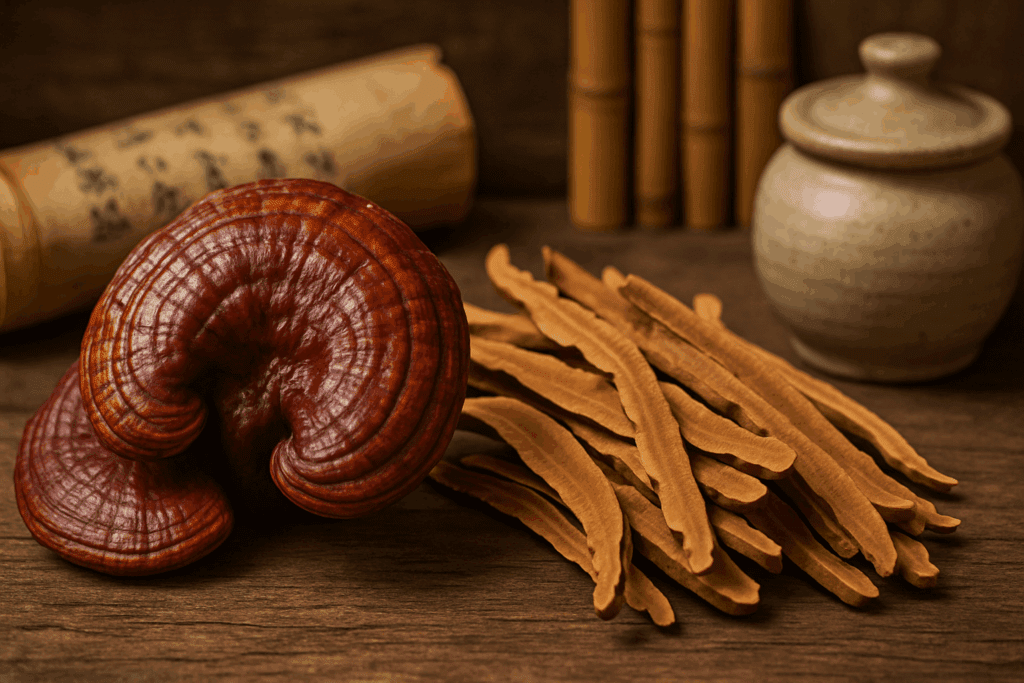
The Science Behind Reishi Mushroom’s Effects on Sleep
Research into the effects of reishi mushroom for sleep is still in its relative infancy compared to pharmaceutical sleep aids; however, early findings are encouraging. Studies suggest that reishi may modulate the hypothalamic-pituitary-adrenal (HPA) axis, a central component of the body’s stress response system. By promoting a more balanced release of cortisol, the primary stress hormone, reishi may help facilitate a physiological environment more conducive to restful sleep.
Moreover, reishi’s high polysaccharide content is associated with immune system modulation and anti-inflammatory effects. Chronic inflammation and immune dysregulation have been linked to sleep disturbances, indicating another pathway through which reishi for sleep may exert its benefits. Preliminary animal studies also demonstrate that reishi extracts may increase non-rapid eye movement (NREM) sleep, which is the deep, restorative phase of the sleep cycle critical for cognitive and physical recovery.
It is also worth considering the anxiolytic effects of reishi. Several studies propose that reishi can reduce anxiety-like behaviors in animal models, suggesting that its adaptogenic and calming properties could translate into meaningful improvements in sleep initiation and maintenance for human users. As research continues to evolve, reishi’s promise as one of the best mushrooms for sleep gains additional credibility among health professionals and discerning consumers alike.
How Does Reishi Make You Sleepy? The Mechanisms at Work
Many people wonder, “does reishi make you sleepy?” While reishi does not act as a sedative in the same way pharmaceutical sleep aids do, its mechanisms for promoting restfulness are nuanced and multifaceted. Instead of forcing sleep, reishi supports the body’s natural transition into a state of relaxation, allowing sleep to occur more organically.
The triterpenoids found in reishi have been shown to influence the GABAergic system, a major inhibitory neurotransmitter system responsible for promoting calmness and relaxation. By enhancing GABAergic activity, reishi may reduce neuronal excitability and ease the hyperarousal often associated with insomnia. Additionally, reishi’s ability to stabilize blood sugar levels may contribute indirectly to improved sleep quality, as nocturnal blood sugar fluctuations can disrupt the sleep cycle.
Importantly, reishi also appears to impact the autonomic nervous system, promoting parasympathetic (“rest-and-digest”) dominance over sympathetic (“fight-or-flight”) activity. This shift toward parasympathetic dominance is essential for initiating sleep, reinforcing the idea that reishi for sleep supports a more natural and physiological approach to rest rather than pharmacological sedation. Through these diverse mechanisms, reishi creates an internal environment where sleep can thrive without overpowering the body’s natural rhythms.
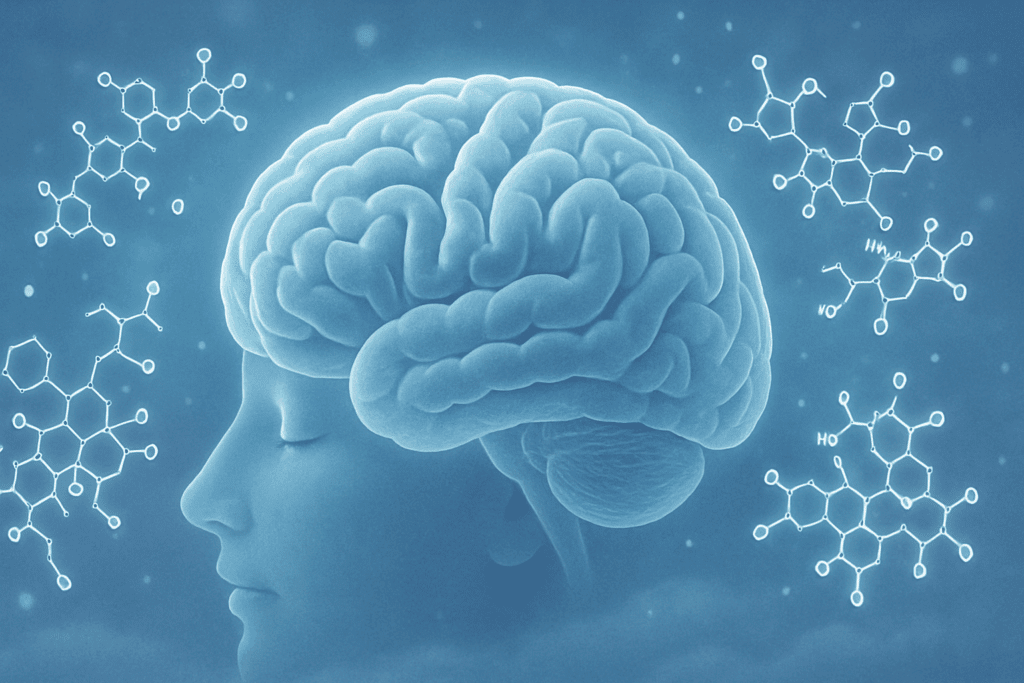
Comparing Reishi to Other Mushrooms for Sleep
When evaluating the best mushroom for sleep, it is valuable to consider how reishi compares to other well-known medicinal mushrooms. Lion’s mane, cordyceps, and chaga, for instance, are celebrated for their cognitive and immune-supportive properties but are not primarily associated with sleep promotion. Reishi, on the other hand, stands out due to its distinctive calming and adaptogenic effects, making it a preferred choice among those specifically seeking sleep support.
Cordyceps, while an excellent energy enhancer, might actually be counterproductive for individuals dealing with insomnia or nighttime restlessness. Lion’s mane, renowned for neurogenesis support, tends to have a more stimulating effect on cognitive functions and is thus better suited for daytime use. Chaga, often employed for its antioxidant benefits, does not exhibit significant sedative or relaxing properties.
In contrast, reishi’s specific actions on the nervous system and stress pathways make it uniquely positioned among mushrooms for sleep. Its historical reputation as a spiritual herb that “calms the spirit” in traditional medicine further underscores its appropriateness as a nighttime supplement. As consumers increasingly seek natural alternatives to pharmaceutical sleep aids, reishi’s distinctive profile cements its status as a top contender in the world of functional mushrooms.
Practical Tips for Using Reishi Mushroom for Sleep
For those interested in incorporating reishi mushroom for sleep into their wellness routines, several practical considerations can enhance effectiveness. First, sourcing a high-quality reishi supplement is paramount. Look for products that use fruiting body extracts rather than mycelium, as the fruiting body contains higher concentrations of beneficial compounds like triterpenoids and polysaccharides.
Dosage is another important factor. While there is no universally agreed-upon dosage for reishi for sleep, many experts recommend starting with a moderate amount, such as 1,000 to 2,000 mg of extract per day, and adjusting based on individual response. Timing is equally crucial. Taking reishi in the evening, perhaps an hour or two before bedtime, allows its relaxing effects to align with the body’s natural circadian rhythms.
Form also matters. Reishi is available in capsules, powders, tinctures, and teas. Each form offers different advantages; for instance, a warm cup of reishi tea can become part of a calming nighttime ritual, enhancing its psychological association with relaxation and sleep. No matter the form, consistency is key. Unlike pharmaceutical sleep aids that may offer immediate effects, adaptogens like reishi often require regular use over several weeks to manifest their full benefits.
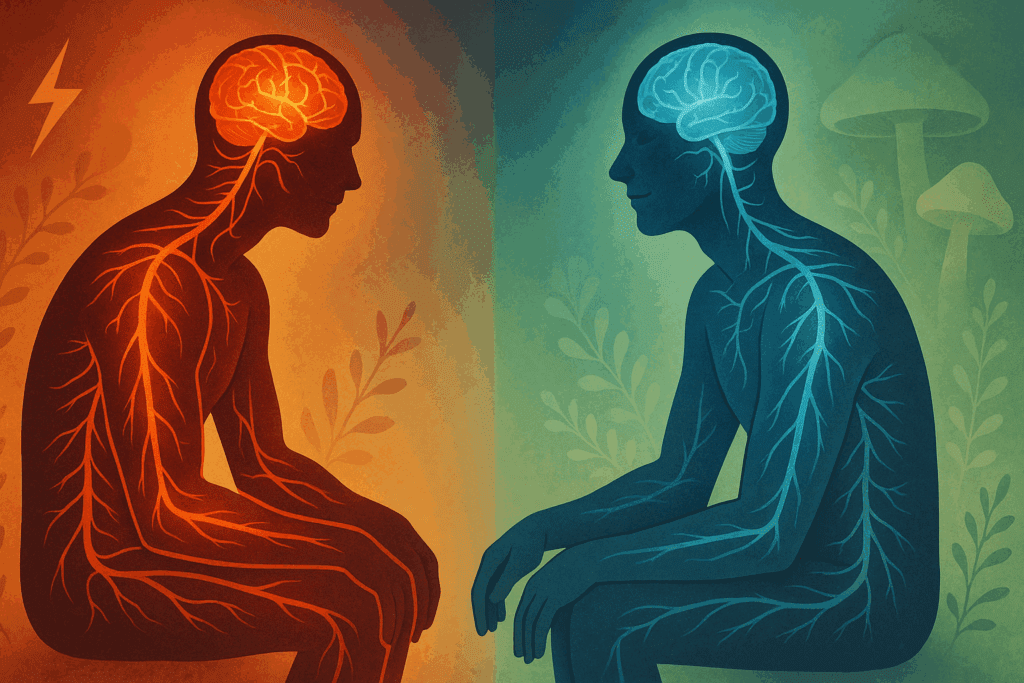
Potential Side Effects and Safety Considerations
While reishi mushroom for sleep is generally considered safe for most people, it is important to be aware of potential side effects and contraindications. Some individuals may experience mild digestive upset, dizziness, or dry mouth when first beginning supplementation. These symptoms are typically transient and can often be mitigated by adjusting the dosage.
Those with bleeding disorders or individuals taking anticoagulant medications should exercise caution, as reishi has blood-thinning properties. Similarly, individuals with autoimmune conditions should consult a healthcare professional before using reishi, given its immunomodulatory effects. Pregnant and breastfeeding women are also advised to seek medical advice before incorporating reishi supplements, as robust safety data in these populations are lacking.
Importantly, because reishi supports relaxation without sedating the central nervous system, it is less likely to cause dependence or rebound insomnia compared to pharmaceutical options. Nevertheless, informed, cautious use remains essential to maximizing benefits while minimizing risks. As always, personalized advice from a qualified healthcare provider ensures the safest and most effective integration of reishi into a sleep-supportive lifestyle.
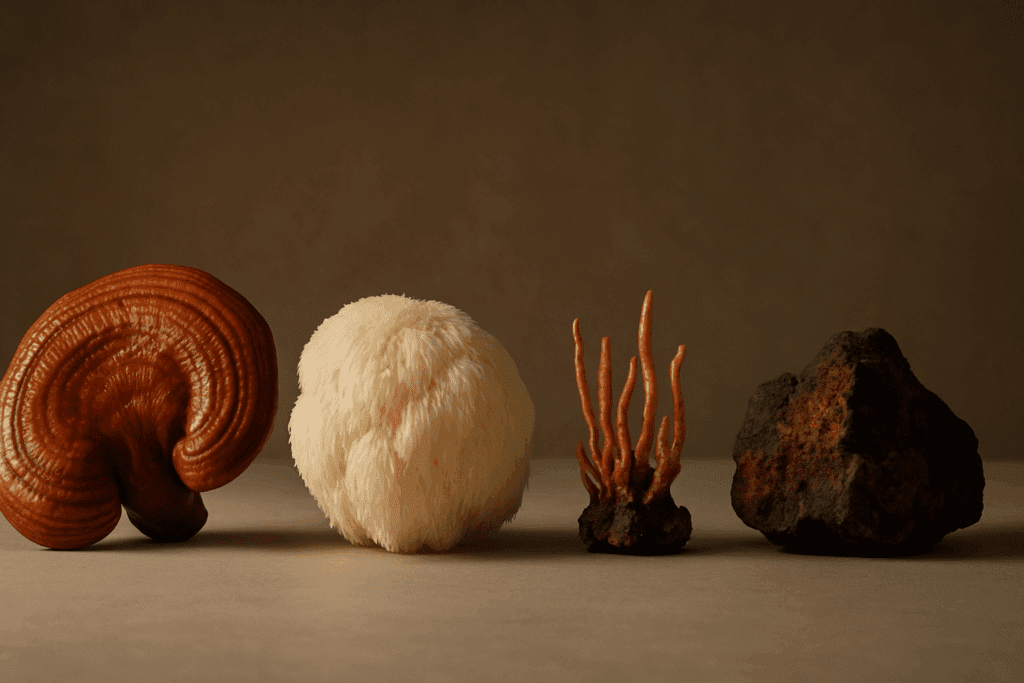
Frequently Asked Questions (FAQ) About Reishi Mushroom for Sleep
1. How long does it take for reishi mushroom for sleep to start working?
While some individuals notice mild relaxation within a few days of using reishi mushroom for sleep, most people experience more pronounced benefits after consistent use over several weeks. Adaptogens like reishi typically require time to support the body’s stress response systems and regulate sleep patterns naturally. Unlike pharmaceutical sleep aids, reishi for sleep does not induce immediate drowsiness but fosters an environment conducive to natural rest. Regular evening supplementation, combined with good sleep hygiene, can optimize results. Therefore, patience and consistency are key when incorporating mushrooms for sleep into a wellness routine.
2. Can combining reishi with other mushrooms for sleep improve results?
Yes, combining reishi with other mushrooms for sleep can create a synergistic effect, enhancing overall relaxation and nighttime recovery. For example, pairing reishi with maitake or turkey tail mushrooms may boost immune system regulation, indirectly supporting sleep by reducing underlying inflammation. However, reishi remains the best mushroom for sleep due to its targeted influence on the nervous system and cortisol regulation. When blending mushrooms, it is important to select high-quality supplements that ensure optimal concentrations of active compounds. Always consult with a healthcare provider when considering complex herbal combinations for sleep health.
3. Does reishi make you sleepy during the day if taken in the morning?
Interestingly, while reishi mushroom for sleep promotes nighttime relaxation, it does not typically cause daytime sleepiness when taken earlier in the day. Reishi functions more as a modulator of the body’s stress response rather than a sedative, supporting balanced energy throughout the day. However, if someone is already experiencing profound fatigue due to adrenal stress, introducing reishi might initially deepen feelings of tiredness as the body shifts into recovery mode. For optimal results, most individuals use reishi for sleep by taking it in the evening, aligning supplementation with natural circadian rhythms. Adjusting the timing based on personal response is often the best strategy.
4. Is there a difference between reishi mushroom tea and capsules for sleep support?
Both reishi mushroom tea and capsules can effectively promote relaxation, but they offer distinct advantages depending on personal preference. Reishi tea, prepared from high-quality extracts, introduces a calming ritual that enhances the psychological association with winding down, making it an excellent choice for those prioritizing bedtime routines. Capsules, on the other hand, deliver a more standardized dose of active compounds like triterpenoids and polysaccharides. Whether opting for tea or capsules, individuals seeking the best mushroom for sleep should prioritize reputable brands that use fruiting body extracts rather than mycelium on grain. Selecting the right format can personalize and enhance the reishi for sleep experience.
5. What lifestyle changes can complement the use of reishi mushroom for sleep?
Incorporating reishi mushroom for sleep into a broader sleep hygiene plan can maximize its benefits. Reducing evening exposure to blue light, maintaining a consistent bedtime schedule, and practicing relaxation techniques like meditation all work synergistically with reishi’s natural properties. Creating a dedicated nighttime ritual, such as sipping reishi tea while journaling or practicing deep breathing, enhances the psychological readiness for rest. Moreover, limiting caffeine intake after noon can further support the calming influence of mushrooms for sleep. When used thoughtfully, reishi becomes a powerful ally in an integrated approach to achieving restful, restorative sleep.
6. How does the quality of the supplement impact the effectiveness of reishi for sleep?
The effectiveness of reishi for sleep is heavily dependent on supplement quality. Inferior products may contain only mycelium grown on grain substrates, resulting in diluted active ingredient concentrations. In contrast, high-quality reishi supplements derive from the fruiting body and are standardized for triterpenoid and polysaccharide content. These bioactive compounds are critical for reishi’s effectiveness as one of the best mushrooms for sleep. Opting for third-party tested, organic, and extract-based formulations ensures users receive the full therapeutic potential of reishi without contaminants or unnecessary fillers. Investing in quality guarantees a safer and more rewarding experience.
7. Can reishi mushroom for sleep help people dealing with stress-related insomnia?
Absolutely, reishi mushroom for sleep is particularly well-suited for individuals struggling with stress-related insomnia. Its adaptogenic properties support the body’s ability to cope with chronic stress, which is often a significant contributor to disrupted sleep. By modulating cortisol levels and supporting parasympathetic nervous system activity, reishi creates a physiological foundation for more consistent and restorative rest. For many, reishi for sleep acts as a gentle guide, nudging the body back toward its natural sleep-wake rhythms. Incorporating additional stress-reduction practices, such as yoga or cognitive-behavioral therapy, can amplify these effects.
8. What makes reishi the best mushroom for sleep compared to other natural options?
While various mushrooms for sleep offer potential benefits, reishi stands out as the best mushroom for sleep due to its multi-faceted actions on the mind and body. Unlike lion’s mane, which primarily stimulates cognitive function, or cordyceps, which boosts energy levels, reishi focuses specifically on relaxation, stress adaptation, and immune system balance. This unique profile makes it particularly effective for supporting the conditions necessary for high-quality sleep. Furthermore, centuries of traditional use, combined with emerging clinical evidence, lend reishi an unparalleled reputation in both Eastern and Western integrative medicine practices. Its gentle yet profound influence continues to resonate with those seeking natural sleep support.
9. Does reishi make you sleepy immediately, or is it a gradual process?
Reishi does not typically make you sleepy immediately after consumption; instead, it facilitates a gradual shift toward a state of relaxation over time. This gradual support aligns more closely with the body’s natural rhythms, avoiding the abrupt, artificial sedation caused by many pharmaceutical sleep aids. Reishi for sleep helps lower overall stress levels, enabling deeper, more sustained sleep when used consistently. Some individuals may notice mild relaxation within an hour or two, particularly when consuming a warm reishi tea in the evening. However, for lasting and meaningful improvements in sleep quality, regular use over several weeks remains the best approach.
10. What future research directions look promising for reishi mushroom and sleep health?
Emerging areas of research on reishi mushroom for sleep are particularly exciting, especially investigations into its impact on sleep architecture and neurotransmitter regulation. Scientists are exploring whether reishi can increase time spent in restorative slow-wave sleep phases, which are critical for cognitive repair and emotional regulation. Advanced studies on how reishi modulates specific pathways in the gut-brain axis could open new avenues for treating complex sleep disorders linked to microbiome health. Additionally, personalized approaches to using mushrooms for sleep, based on genetic predispositions and circadian typologies, represent a cutting-edge frontier. As research evolves, reishi for sleep may become even more integral to personalized, precision medicine models aimed at optimizing long-term wellness.
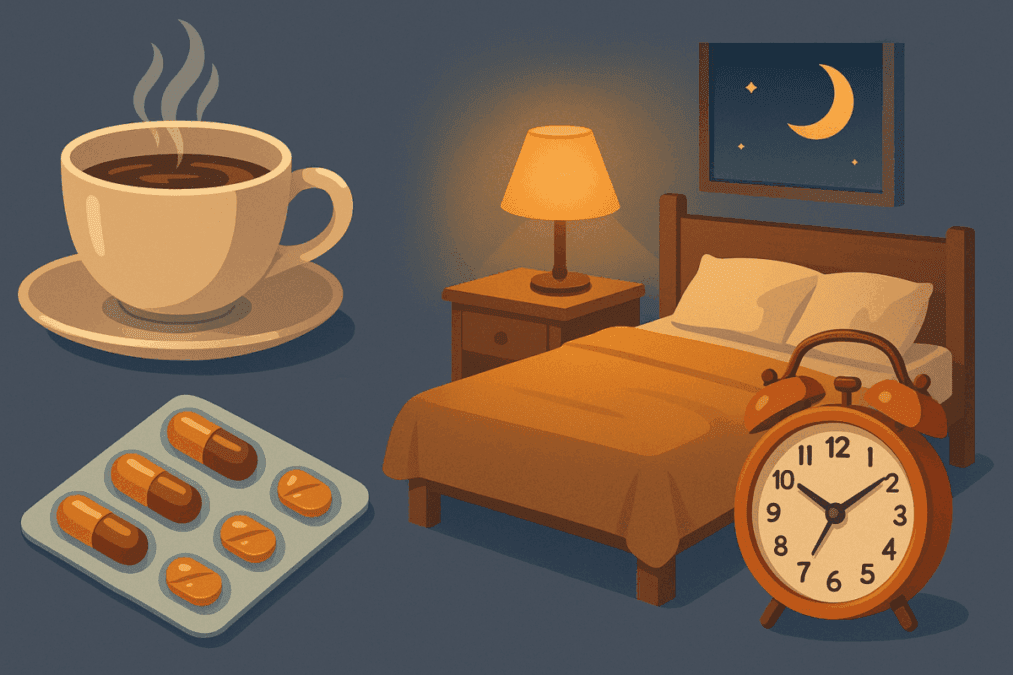
Conclusion: Embracing Reishi Mushroom for Sleep as Part of a Holistic Wellness Strategy
As sleep disturbances continue to impact the lives of millions worldwide, turning to natural solutions like reishi mushroom for sleep offers a compelling alternative to conventional pharmaceutical interventions. With its centuries-long history of use and growing body of modern scientific support, reishi presents a promising tool for enhancing relaxation, managing stress, and promoting better sleep quality.
Understanding how reishi for sleep works—from modulating stress hormones to enhancing GABAergic activity—empowers individuals to make informed decisions about their wellness journeys. Its unique position among mushrooms for sleep, particularly when compared to other functional fungi, highlights its special role as a calming, adaptogenic ally.
Ultimately, the question “does reishi make you sleepy?” reveals a deeper insight: reishi does not force sleep but rather supports the body’s innate ability to relax and rejuvenate. For those seeking the best mushroom for sleep, reishi offers a natural, evidence-informed option that aligns with a holistic philosophy of health. By integrating reishi mushroom into a comprehensive approach that also includes sleep hygiene, stress management, and mindful living, individuals can move closer to achieving the restorative sleep that is so essential for vibrant health and well-being.
Was this article helpful? Don’t let it stop with you. Share it right now with someone who needs to see it—whether it’s a friend, a colleague, or your whole network. And if staying ahead on this topic matters to you, subscribe to this publication for the most up-to-date information. You’ll get the latest insights delivered straight to you—no searching, no missing out.
Further Reading:
Reishi Mushroom for Sleep: A Natural Way to Restful Nights
Reishi Mushroom Liquid Extract – Calm Your Mind & Strengthen Your Immunity | 50ml
Reishi Mushroom: Queen of the Mushroom Kingdom
.Important Note: The information contained in this article is for general informational purposes only, and should not be construed as health or medical advice, nor is it intended to diagnose, prevent, treat, or cure any disease or health condition. Before embarking on any diet, fitness regimen, or program of nutritional supplementation, it is advisable to consult your healthcare professional in order to determine its safety and probable efficacy in terms of your individual state of health.
Regarding Nutritional Supplements Or Other Non-Prescription Health Products: If any nutritional supplements or other non-prescription health products are mentioned in the foregoing article, any claims or statements made about them have not been evaluated by the U.S. Food and Drug Administration, and such nutritional supplements or other health products are not intended to diagnose, treat, cure, or prevent any disease.


